Have you ever wondered how long it takes for your goods to reach the UK from China by sea freight? Understanding the intricacies of sea freight transit times is essential for anyone involved in international trade. In this blog, we will explore the estimated durations for sea freight from China to the UK, delve into the factors affecting these transit times, and provide insights on choosing the right shipping partner. Join us as we navigate the complexities of sea freight and help you optimize your shipping experience!
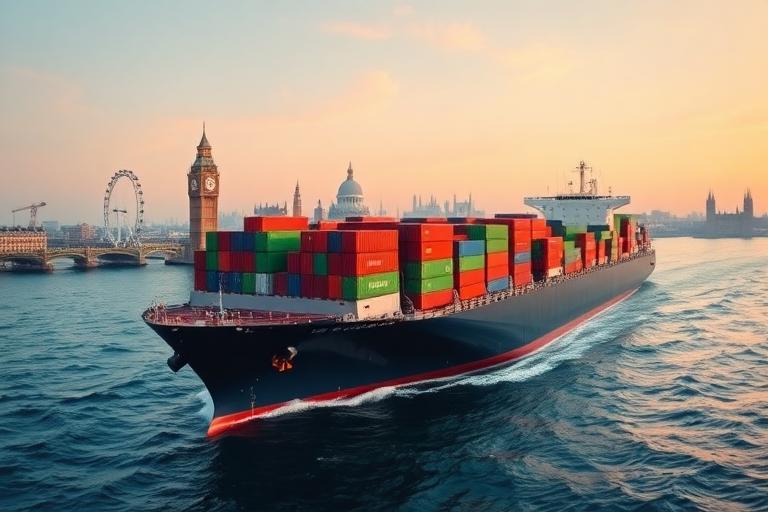
Understanding Sea Freight from China to the UK
Overview of China-to-UK Trade Routes
The trade routes from China to the UK are vital arteries for international commerce, connecting two of the world’s largest economies. These routes predominantly utilize maritime transport, with major shipping lanes traversing the South China Sea, Indian Ocean, and the Mediterranean Sea. Key ports involved in these shipments include Shanghai, Shenzhen, and Ningbo in China, and Felixstowe, Southampton, and London Gateway in the UK.
The choice of route greatly impacts the transit time and cost, as vessels may take different paths based on prevailing weather conditions, shipping lanes, and port congestion. Understanding these routes is crucial for importers, as it helps in planning shipments more efficiently and effectively. For more information on shipping routes, you can explore Shipping From China to the United Kingdom.
Importance of Sea Freight in International Trade
Sea freight is a cornerstone of international trade, accounting for approximately 90% of global trade volume (source: UNCTAD). It is particularly favored for transporting bulk goods over long distances due to its cost-effectiveness and ability to carry large quantities.
For businesses importing from China to the UK, sea freight provides a reliable and economical solution compared to air freight, especially for non-time-sensitive goods. The lower shipping costs associated with sea freight allow importers to maximize profit margins, making it a preferred choice for commodities like electronics, machinery, textiles, and consumer goods. If you’re interested in air freight options, check out Air Freight.
Estimated Transit Times for Sea Freight
Typical Duration for Sea Freight from China to the UK
The typical transit time for sea freight from China to the UK ranges between 28 to 40 days. This duration can fluctuate based on various factors, including the specific ports of departure and arrival, the shipping line selected, and the shipping method (Full Container Load or Less than Container Load).
Factors Affecting Transit Times
Several factors can influence the transit times for sea freight:
Distance: The physical distance between the ports plays a significant role; for instance, shipments from Shanghai to Felixstowe may take longer than those from Ningbo to Southampton.
Vessel Speed: Different shipping lines operate vessels at varying speeds, which can affect delivery times.
Port Operations: Efficiency in loading and unloading operations at ports can cause delays.
Weather Conditions: Adverse weather, such as storms or fog, can lead to rerouting or delays in departure or arrival.
Customs Clearance: The time taken for customs procedures can vary, impacting the overall delivery timeline. For a comprehensive guide on customs procedures, visit Customs Clearance.
Comparison of Transit Times from Major Chinese Ports
Here is a comparative table showcasing typical transit times from major Chinese ports to key UK ports:
| Departure Port | Arrival Port | Estimated Transit Time |
|---|---|---|
| Shanghai | Felixstowe | 28-32 days |
| Shenzhen | Southampton | 30-35 days |
| Ningbo | London Gateway | 30-40 days |
| Guangzhou | Liverpool | 35-40 days |
| Qingdao | Tilbury | 28-33 days |
This table provides a clear overview for importers to evaluate their shipping options effectively. By choosing the right port and shipping line, businesses can optimize their logistics strategy, saving both time and costs on their imports from China.
In conclusion, understanding the intricacies of sea freight from China to the UK—ranging from trade routes to estimated transit times—is crucial for businesses looking to import goods efficiently and cost-effectively. For further insights on shipping from China to the UK, refer to Sea Freight From China to the UK.
Read More:
- Shipping From China To Netherlands
- Shipping From China To Spain
- Shipping From China To Germany
- Shipping From China To France
- Shipping From China to Italy
- Shipping From China To Poland
- Shipping From China to United Kingdom
Factors Influencing Sea Freight Duration
Weather Conditions and Sea Currents
Weather conditions significantly affect sea freight durations between China and the UK. Factors such as storms, fog, and heavy rain can delay ships, leading to extended transit times. The South China Sea and the North Atlantic are particularly prone to unpredictable weather patterns. Additionally, sea currents play a critical role; for instance, favorable currents can expedite shipping, while adverse currents can slow vessels down. Shipping companies often have to adjust their routes based on weather forecasts to ensure the safety of the cargo and the vessel, which may lead to longer delivery times. For businesses interested in maximizing their shipping efficiency, Dantful offers expertise in navigating these challenges.
Port Congestion and Delays
Port congestion is another major factor impacting the duration of sea freight. The Port of Shanghai, for example, is one of the busiest ports in the world, and high traffic can lead to delays in loading and unloading cargo. Similarly, ports in the UK, like the Port of Felixstowe and the Port of Southampton, can experience congestion, particularly during peak seasons such as the holiday months. Delays at ports can result from various reasons including labor strikes, equipment failures, or increases in container volume, which can significantly extend the overall transit time. Understanding these factors is vital for any company looking to streamline their logistics processes.
Customs Procedures and Clearance Times
Customs procedures are critical to international shipping and can also influence sea freight duration. When shipping goods from China to the UK, cargo must undergo customs clearance, which involves documentation checks, assessments, and duty payments. Delays in this process can occur due to incomplete paperwork, inspections, or regulatory compliance issues. Therefore, working with a competent freight forwarder like Dantful International Logistics, who is experienced in customs processes, can help streamline these procedures and reduce potential delays. Their Customs Clearance services ensure that shipments meet all regulatory requirements efficiently.
Choosing the Right Sea Freight Service
Differences Between FCL and LCL Shipments
When opting for sea freight, businesses must choose between Full Container Load (FCL) and Less than Container Load (LCL) shipments. FCL means that an entire container is dedicated to a single shipper, offering faster transit times and lower costs per cubic meter for large shipments. In contrast, LCL involves consolidating goods from multiple shippers into one container, which can be cost-effective for smaller shipments but may extend delivery times due to additional handling and consolidation processes. Choosing the right service depends on the volume of goods being shipped and the urgency of the delivery. For more detailed guidance, check out what is lcl and fcl in shipping.
Selecting a Reliable Shipping Partner
Choosing a reliable shipping partner is crucial for ensuring timely and safe deliveries. Factors to consider when selecting a freight forwarder include their experience, reputation, customer service, and the range of services offered. A reputable shipping partner like Dantful International Logistics provides comprehensive solutions, including ocean freight, customs clearance, and door-to-door services, which cater to various shipping needs. Customer reviews and testimonials can provide valuable insights into the freight forwarder’s reliability and efficiency, ensuring businesses make informed decisions.
How to Select a Reliable Freight Forwarder
To select a reliable freight forwarder, consider the following steps:
- Research and Compare: Look for multiple freight forwarders, compare their services, rates, and customer reviews.
- Check Credentials: Ensure the forwarder has necessary certifications and licenses, such as Customs broker licenses and International Air Transport Association (IATA) membership.
- Ask about Insurance: A good freight forwarder should offer cargo insurance options to protect your goods during transit.
- Evaluate Communication: Effective communication is vital; choose a forwarder who is responsive and transparent about processes and potential issues.
By following these guidelines and partnering with a professional provider like Dantful International Logistics, you can ensure a smoother and more efficient shipping experience. For those shipping to the UK, Shipping From China to UK can provide tailored insights into the process.
Optimizing Sea Freight Delivery Times
Strategies to Reduce Transit Time
When importing goods from China to the UK, optimizing sea freight delivery times is crucial for maintaining competitive advantage in the global market. Here are some effective strategies to consider:
Choosing the Right Shipping Route: Selecting a direct shipping route can significantly reduce transit time. Avoiding routes with multiple stops or transshipments minimizes delays.
Utilizing Faster Shipping Services: Some freight forwarders, like Dantful International Logistics, offer expedited shipping options. These services may come at a premium but can save time, especially for urgent shipments.
Planning Shipments in Advance: Proper planning, including scheduling shipments during off-peak seasons, can lead to smoother operations and less congestion at ports.
Leveraging Technology: Implementing advanced tracking systems allows for real-time visibility on shipments, enabling proactive management of potential delays.
Optimizing Loading and Unloading Procedures: Efficient loading and unloading practices at both the origin and destination ports can help reduce turnaround times. Engage with your freight forwarder to ensure they have streamlined processes in place.
Monitoring and Tracking Shipments
Effective monitoring and tracking of shipments enhance transparency and can preemptively address delays. Here are ways to ensure effective shipment tracking:
Use Advanced Tracking Tools: Many freight forwarders provide online tracking services where you can monitor your shipment’s status. This includes real-time updates on location, estimated delivery times, and any delays.
Regular Communication with Your Freight Forwarder: Establish a clear communication plan with your freight forwarder. Regular updates can provide insights into any potential holdups and allow you to react swiftly.
Utilize GPS and RFID Technologies: These technologies can offer enhanced tracking capabilities, allowing you to keep a close eye on your container’s journey across the ocean.
Cost Implications and Considerations
Cost Factors in Sea Freight
Understanding the cost implications of sea freight is essential for importers. Key factors influencing costs include:
Freight Charges: These are the standard fees charged for transporting goods, which can vary based on the shipping method (FCL or LCL) and distance.
Port Fees: Various fees incurred at the Chinese departure port and the UK arrival port can affect overall costs, including handling and terminal fees.
Customs Duties: Import tariffs and duties imposed by the UK government can significantly impact the final cost of your shipment.
Insurance: Protecting your goods with marine insurance is advisable, adding another layer of cost but ensuring peace of mind against potential losses.
Balancing Cost with Transit Time
While lower costs are appealing, it’s important to balance them with transit times. Here are some considerations:
Assessing Urgency: For time-sensitive goods, opting for faster and potentially more expensive services may be beneficial. Conversely, non-urgent shipments can utilize more economical routes.
Cost-Benefit Analysis: Weigh the benefits of faster shipping against the additional costs involved. Collaborate with your freight forwarder to identify the best options for your specific needs.
Long-term Relationships with Shipping Partners: Developing strong relationships with reliable freight forwarders can lead to negotiated rates and better service, ultimately benefiting both cost and delivery efficiency.
Preparing for Sea Freight Shipments
Necessary Documentation for Shipping
Proper documentation is critical for a successful sea freight process. Key documents include:
Bill of Lading (BOL): This is a legal document between the shipper and carrier, detailing the type, quantity, and destination of the goods.
Commercial Invoice: A detailed invoice that outlines the goods being shipped, their value, and terms of sale is essential for customs clearance.
Packing List: This document provides details on the contents of each shipment, including dimensions and weight, aiding in the verification process during customs inspection.
Customs Declaration: This form must be submitted to customs authorities to declare the goods being imported, ensuring compliance with local regulations.
Tips for Streamlined Customs Processing
Efficient customs processing can significantly speed up the overall shipping timeline. Here are some tips:
Ensure Accurate Documentation: Double-check all paperwork for accuracy to prevent delays due to discrepancies.
Engage a Knowledgeable Freight Forwarder: Partnering with a reputable and experienced freight forwarder like Dantful International Logistics can streamline customs procedures, as they are well-versed in the requirements and regulations.
Pre-emptive Compliance Checks: Familiarize yourself with the customs regulations of the UK and ensure compliance before the shipment arrives. This can help speed up the clearance process.
By implementing these strategies and understanding the costs associated with sea freight, you can enhance the efficiency of your import operations from China to the UK. For a seamless experience, consider partnering with Dantful International Logistics, a highly professional and cost-effective one-stop solution for all your logistics needs.

Young Chiu is a seasoned logistics expert with over 15 years of experience in international freight forwarding and supply chain management. As CEO of Dantful International Logistics, Young is dedicated to providing valuable insights and practical advice to businesses navigating the complexities of global shipping.

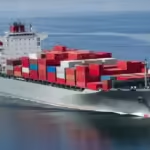
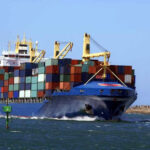
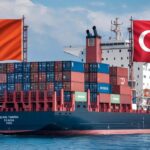
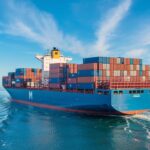
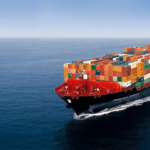



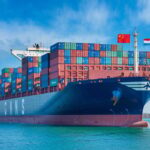

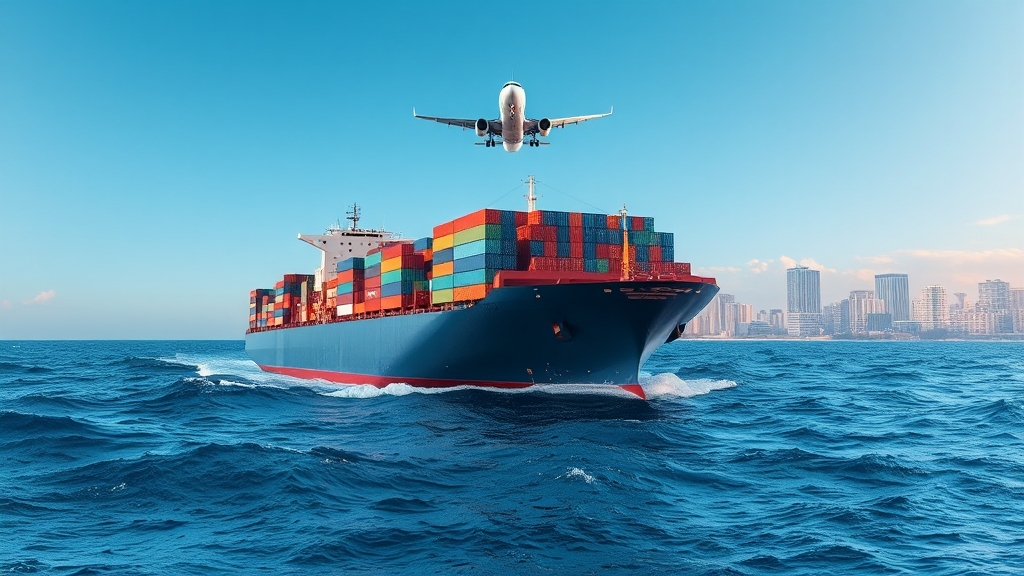
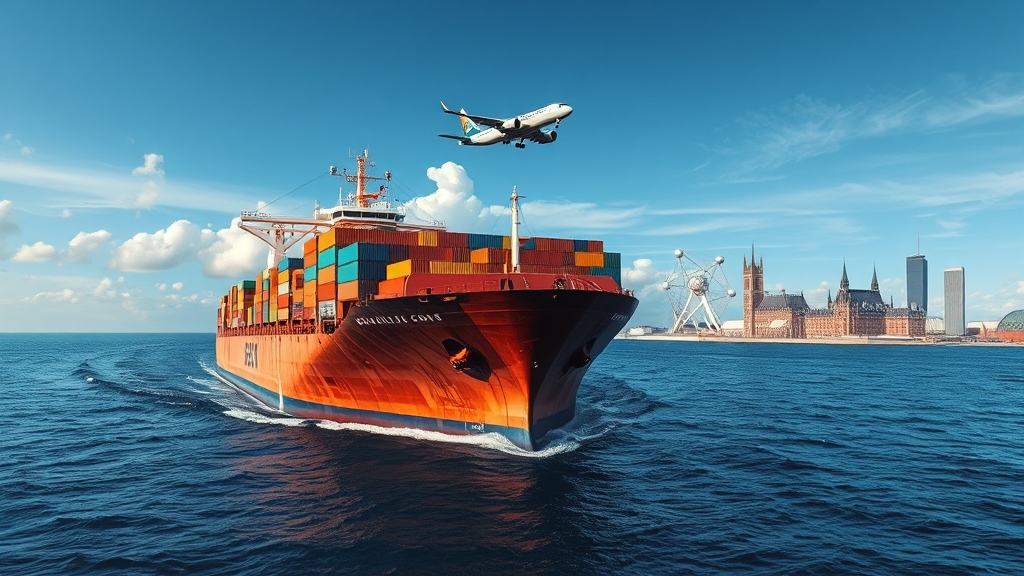
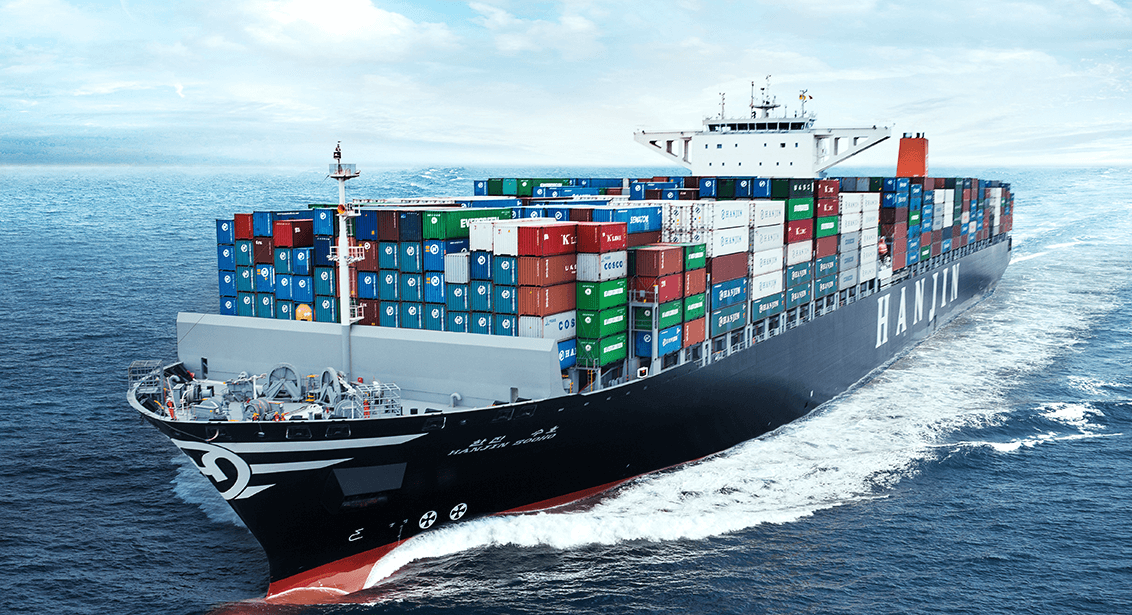
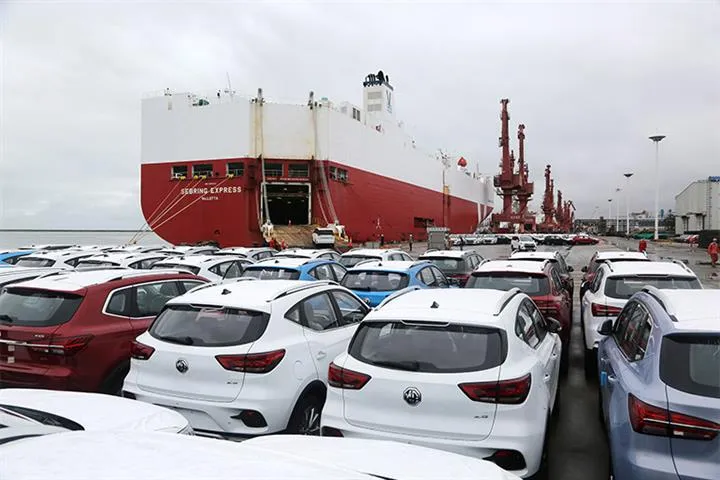






 Afrikaans
Afrikaans Shqip
Shqip አማርኛ
አማርኛ العربية
العربية Հայերեն
Հայերեն Azərbaycan dili
Azərbaycan dili Euskara
Euskara Беларуская мова
Беларуская мова বাংলা
বাংলা Bosanski
Bosanski Български
Български Català
Català Cebuano
Cebuano Chichewa
Chichewa 简体中文
简体中文 繁體中文
繁體中文 Corsu
Corsu Hrvatski
Hrvatski Čeština
Čeština Dansk
Dansk Nederlands
Nederlands English
English Esperanto
Esperanto Eesti
Eesti Filipino
Filipino Suomi
Suomi Français
Français Galego
Galego ქართული
ქართული Deutsch
Deutsch Ελληνικά
Ελληνικά Kreyol ayisyen
Kreyol ayisyen Harshen Hausa
Harshen Hausa Ōlelo Hawaiʻi
Ōlelo Hawaiʻi עִבְרִית
עִבְרִית हिन्दी
हिन्दी Hmong
Hmong Magyar
Magyar Íslenska
Íslenska Igbo
Igbo Bahasa Indonesia
Bahasa Indonesia Gaeilge
Gaeilge Italiano
Italiano 日本語
日本語 Basa Jawa
Basa Jawa ಕನ್ನಡ
ಕನ್ನಡ Қазақ тілі
Қазақ тілі ភាសាខ្មែរ
ភាសាខ្មែរ 한국어
한국어 كوردی
كوردی Кыргызча
Кыргызча ພາສາລາວ
ພາສາລາວ Latin
Latin Latviešu valoda
Latviešu valoda Lietuvių kalba
Lietuvių kalba Lëtzebuergesch
Lëtzebuergesch Македонски јазик
Македонски јазик Malagasy
Malagasy Bahasa Melayu
Bahasa Melayu മലയാളം
മലയാളം Maltese
Maltese Te Reo Māori
Te Reo Māori मराठी
मराठी Монгол
Монгол ဗမာစာ
ဗမာစာ नेपाली
नेपाली Norsk bokmål
Norsk bokmål پښتو
پښتو فارسی
فارسی Polski
Polski Português
Português ਪੰਜਾਬੀ
ਪੰਜਾਬੀ Română
Română Русский
Русский Samoan
Samoan Gàidhlig
Gàidhlig Српски језик
Српски језик Sesotho
Sesotho Shona
Shona سنڌي
سنڌي සිංහල
සිංහල Slovenčina
Slovenčina Slovenščina
Slovenščina Afsoomaali
Afsoomaali Español
Español Basa Sunda
Basa Sunda Kiswahili
Kiswahili Svenska
Svenska Тоҷикӣ
Тоҷикӣ தமிழ்
தமிழ் తెలుగు
తెలుగు ไทย
ไทย Türkçe
Türkçe Українська
Українська اردو
اردو O‘zbekcha
O‘zbekcha Tiếng Việt
Tiếng Việt Cymraeg
Cymraeg יידיש
יידיש Yorùbá
Yorùbá Zulu
Zulu